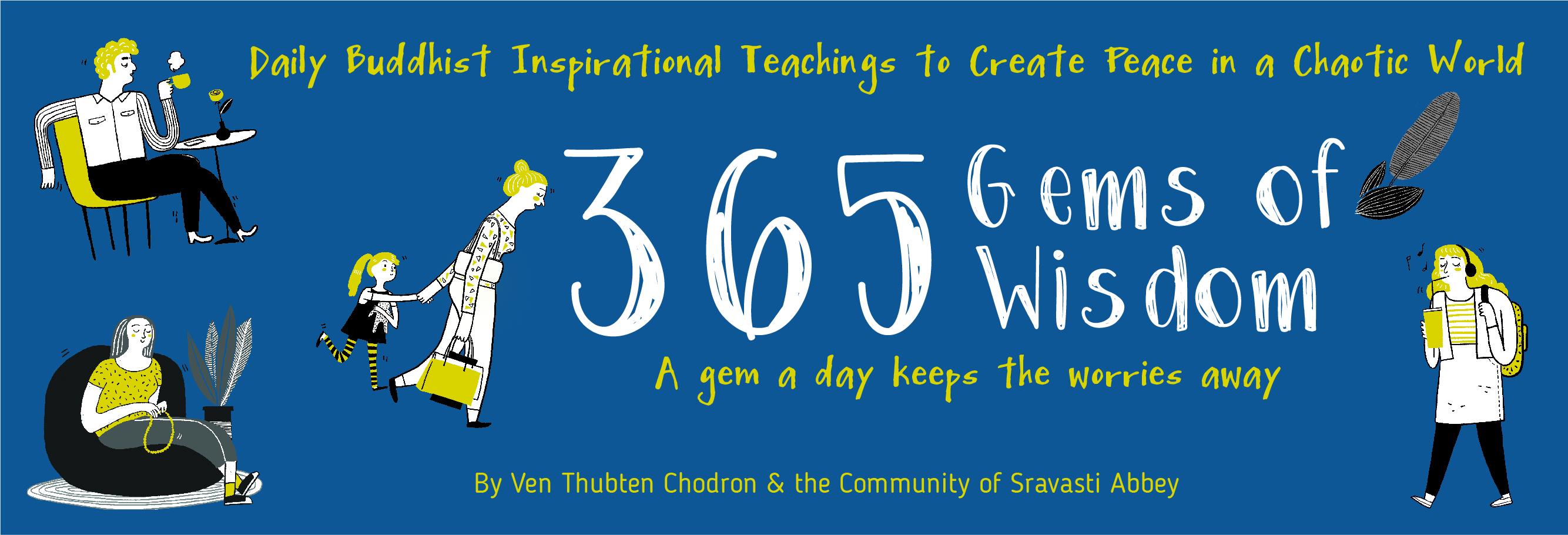February 10 : No Face in the Mirror
When you encounter attractive objects, though they seem beautiful like a rainbow in summer, do not regard them as real and give up attachment. This is the practice of Bodhisattvas.
What is ultimate nature? The emptiness of inherent existence. When we see something that is attractive, it looks like a real object, out there, objective, having its own essence. The appearance of inherent existence comes on many levels. The beauty appears to be inherently existent in the object, and the object itself also appears inherently existent. It appears to have its own nature, to set itself up, to exist unrelated to the mind. Actually, the object is empty of existing in that way. It exists dependent on its parts, dependent on causes and conditions, and more subtly, dependent on our mind conceiving and labelling it. A rainbow in summer looks very beautiful and there is an appearance of colours even though the colours are not really there. Just like a reflection of a face in the mirror, there is no face in the mirror, but there is the reflection. These are analogies that show how things appear in one way but exist in another. There appears to be a real face, but there is not; there appears to be a real rainbow and real colours, but there are not.
When we see that things do not exist from their own side with their own nature, we should not go to the extreme of saying there is nothing there whatsoever. Things do exist, but dependently, nominally, conventionally, and only on the level of appearances. This goes not only for external things, but also for other persons and for ourselves. If we think about an attractive person we can see that not only is there no inherent beauty or attractiveness in that person, there is no inherent person there to start with. Similarly, with us, there is no inherently existent person there to defend or please, or who is all embroiled in suffering. There is only a conventionally existent person. The more we grasp ourselves as inherently existent, the more everything becomes a big deal in relation to this very exaggerated way of apprehending the self. This is what we want to penetrate in order to see the ultimate nature of how things exist, which is nominally independent of being merely labelled, and yet ultimately empty of any inherent existence or nature that we project onto them.
“365 Gems of Wisdom” First Volume (January — March) e-book is out now!

